by Isolde Hilt
This is the story of Veronika and Julien. The young woman is originally from Regensburg, the young man from Cologne. Both studied nature conservation and landscape planning at the Anhalt University of Applied Sciences, where they graduated. Today they live with their daughter, their dog and six chicken ladies in a small mountain village in Spain – in the Castellón region between Barcelona and Valencia. They will soon become parents for the second time. What Veronika and Julien are currently reviving in southern Europe is called „fincas reanimadas“. The two want to preserve the Spanish cultural landscape with organic farming.
They have made a good start. In this interview, they tell us how they plan to master this Herculean task in the future. They also tell us how to get almonds or olive oil from your own tree …
New paths usually open up when you don’t want to take the usual ones. Neither Veronika nor Julien could imagine the classic start to their careers – spending 40 hours in an office as landscape planners. They looked for alternatives – not only in Germany, but also in Spain. „Here we saw the biggest potential to apply the knowledge we had acquired. They did not know right away what exactly they could do here one day, but they moved to Spain anyway in February 2018 with their daughter. „It was a decision for the place and not for a job.“
News beginning in Spain
Veronika turns her hobby, writing, into a profession, starts as a copywriter and begins a correspondence course in journalism on the side. Julien first works in environmental education at the local school. Talking mainly to older villagers, he soon finds out that rural regions in Spain are also suffering from rural exodus. The area where the young family lives is characterised by small parcelled landscape that has been used for agriculture for many centuries. Thus, a valuable cultural landscape of almond and olive groves has grown, which is slowly threatened to be lost. It is not worthwhile for young farmers to cultivate difficult terraced terrain, the locals conclude.
The idea of fincas reanimadas takes shape.
Not to submit to the rules and prices of large-scale buyers, but to build up a direct marketing that reflects the real price of the products … In Julien and Veronika the idea matures to try organic farming. „fincas reanimadas“ takes shape. „At the beginning, we tried to cultivate land that had been lying fallow for a long time and whose trees were in danger of dying due to lack of care,“ Veronika reports. The young couple concluded the first lease agreements with the owners – not without first encountering scepticism: Farming these lands without pesticides and synthetic fertilisers, purely organically and with a focus on great biodiversity? „Meanwhile, more and more older farmers are approaching us and offering their olive or almond groves. They also register that the yield is still good.“
„fincas reanimadas – preserving Spanish cultural landscape with organic farming“: That sounds like a movement. Are more young people discovering their future in it? There are many similar projects in Spain; in the region where Veronika and Julien have settled, they are the only ones. Their origins and still close ties to Germany could be the long-term solution to successfully farming organically:
„The Mediterranean regions are saturated with almonds, olive oil and carob. For local farmers, the only option is usually to sell large quantities of their agricultural produce to large cooperatives – at very low prices. Therefore, small parcel and terraced lands become unprofitable. Without contacts in more distant regions or countries for direct marketing, an alternative economy is difficult for local people. „Because of our origins, we have the opportunity to market high-quality products to Germany at real prices.“ The two young Germans want to take advantage of this potential and hope that their project will be economically sustainable in this way. „And it would be great if the demand is big enough and we could thereby get local farmers on board in the future, who would then also farm their lands organically.“
The labor and the maintenance of the groves are the price of the lease.
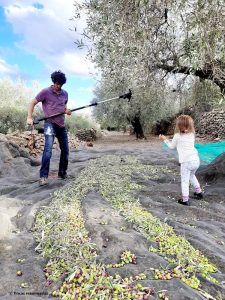 The lands of fincas reanimadas are leased. And the labor and the maintenance of the groves are the price of the lease, the produce the reward for Julien and Veronika. They now cultivate 16 lands, located between 5 and 20 minutes from the village where the young family lives. Some areas are only a few 100 square meters, some up to one and a half hectares.
The lands of fincas reanimadas are leased. And the labor and the maintenance of the groves are the price of the lease, the produce the reward for Julien and Veronika. They now cultivate 16 lands, located between 5 and 20 minutes from the village where the young family lives. Some areas are only a few 100 square meters, some up to one and a half hectares.
Not least because of their studies, it is clear to both of them that only organic farming is an option. „It is the only option that we consider with all the knowledge about the interrelationships in natural balance. Above all, it only works with nature in the long term.“ Away from mass, toward quality, is Veronika’s and Julien’s goal. Conventional farmers kept their soils completely free of growth, either by using herbicides or by using the heavy cultivator and then rolling the bare soil. The goal is above all to maximize harvest efficiency. They were waiting for the olives to fall from the tree and then picking them up with large spiked rollers and selling them at the price per kilo. In this way, a single farmer can cultivate much more land.
The young couple firmly believes that things can be done differently: „We want to build up healthy topsoil and not use up the existing soil. We want to stop erosion and increase water retention. It’s important to us to maximize biodiversity on our land – for tree health and a resilient natural balance.“ Twice a year, the meadows must be mowed, the areas mulched and fertilized with compost and manure. On these areas, Julien and Veronika explain, the conventional method does not work, so they could cultivate much less land. They shake the olives from the trees onto nets below, precisely at the optimal time for ripening. Much more manual labor and precise timing are required, but the efforts are worth it: „The quality of our oil clearly stands out from the crowd as a result. Our oil is fresh, strong, and beneficial to health.“
The harvest of fincas reanimadas: olives, almonds and carob
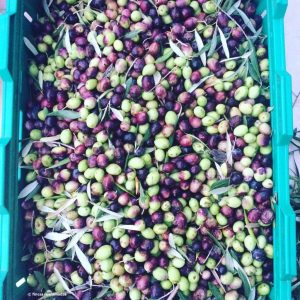 Spring is the time for tree care. In August, the harvest begins. The first to be harvested are the black pods of the carob trees. This is immediately followed by the almond harvest and then, until December, the olive harvest. In addition, shipping, accounting and marketing are carried out throughout the year.
Spring is the time for tree care. In August, the harvest begins. The first to be harvested are the black pods of the carob trees. This is immediately followed by the almond harvest and then, until December, the olive harvest. In addition, shipping, accounting and marketing are carried out throughout the year.
Organic farming can’t need enough support. Veronika and Julien are currently organizing their first student excursion for conservation students from Germany who want to learn about the special flora and fauna in the region and also about organic farming. The two are in exchange with similar projects in Germany, but also in other parts of Europe.
Also „vacation against hand“ is possible at fincas reanimadas. However, at present it is necessary to wait and see if and how opportunities to meet and get to know each other can be realized in times of the pandemic.
How to better secure fincas reanimadas
Even if the start has gone well, a farm can never be sure how its harvest will turn out. For this reason, Veronika and Julien have launched a financing initiative that has met with great goodwill: At fincas reanimadas, it is now possible to sign up for tree sponsorships. People who would like to support this form of organic agriculture, take over the sponsorship for an olive or almond tree and- as a thank-you for their support – receive 5 kilos of almonds or 5 liters of olive oil per year. Such a sponsorship is also very suitable as a gift. „As long as there is still produce from the last harvest, we ship it immediately after a sponsorship is completed. If everything is already gone, we send the yield directly after the next harvest,“ Veronika explains the process. Olive oil is still available at the moment. The duration of a sponsorship is determined by each person. 200 sponsorships per year would be a good basis to secure the young company in the long term.
Julien and Veronika also want to grow because, in the medium term, they would like to enter into cooperation with various farmers who pursue ideals similar to their own. But it’s not easy: „It’s the economic system and the difficult to impossible market conditions that discourage young local people from farming. Very many Spanish families have a long tradition of farming. And the current generation of young people also has a lot in common with their land. However, very few dare to continue the work of their parents or grandparents. Especially in difficult, small-parcel areas, this can simply lead to economic ruin.“ The risk is very high and the earning potential is low.
All the more admirable, then, is what the two young Germans are getting off the ground in Spain!
For more information: https://fincasreanimadas.com/
good news for you celebrates its 4th birthday with a present for you!
For our little anniversary, we would like to give you a present. That means that we will raffle off a one-year sponsorship for an almond tree among all entries.
Write us a nice, personal greeting to toitoitoi@goodnews-for-you.de by Sunday, 7 February at the latest and you will be in the draw!
This article is protected by copyright.

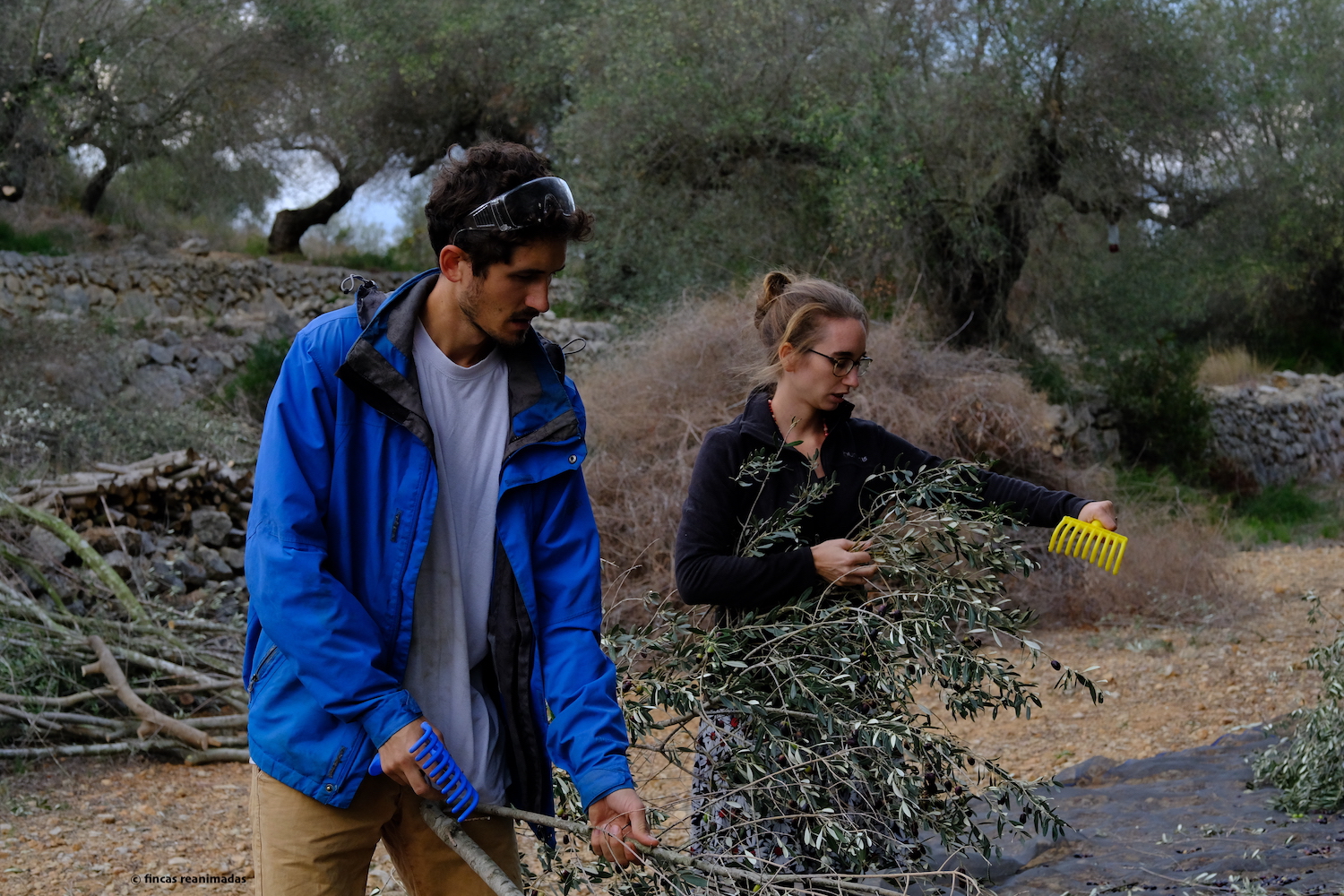
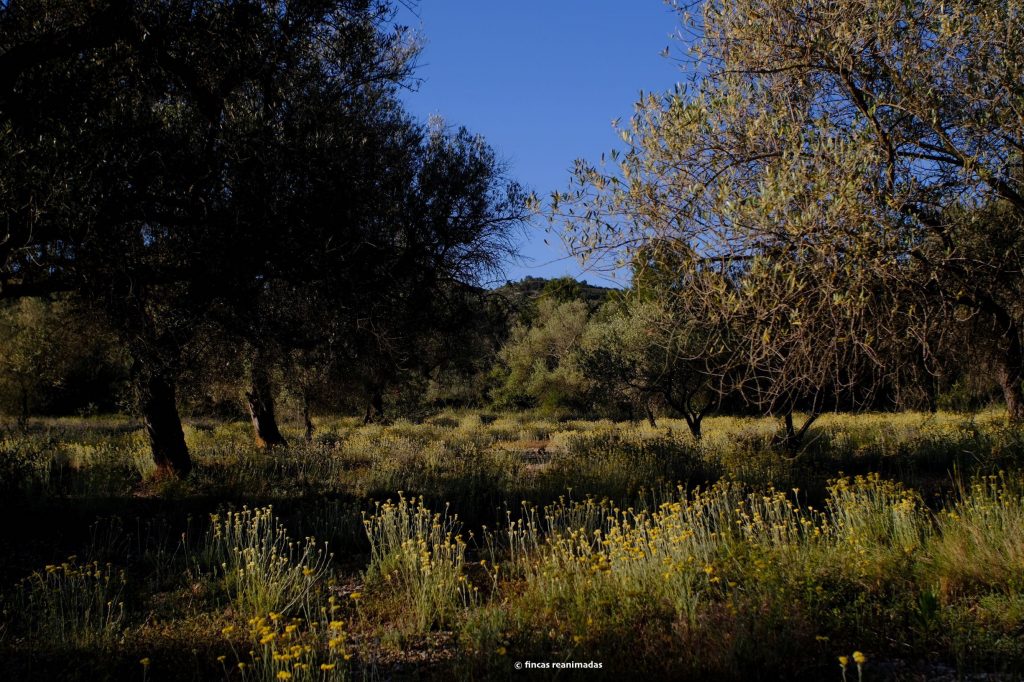
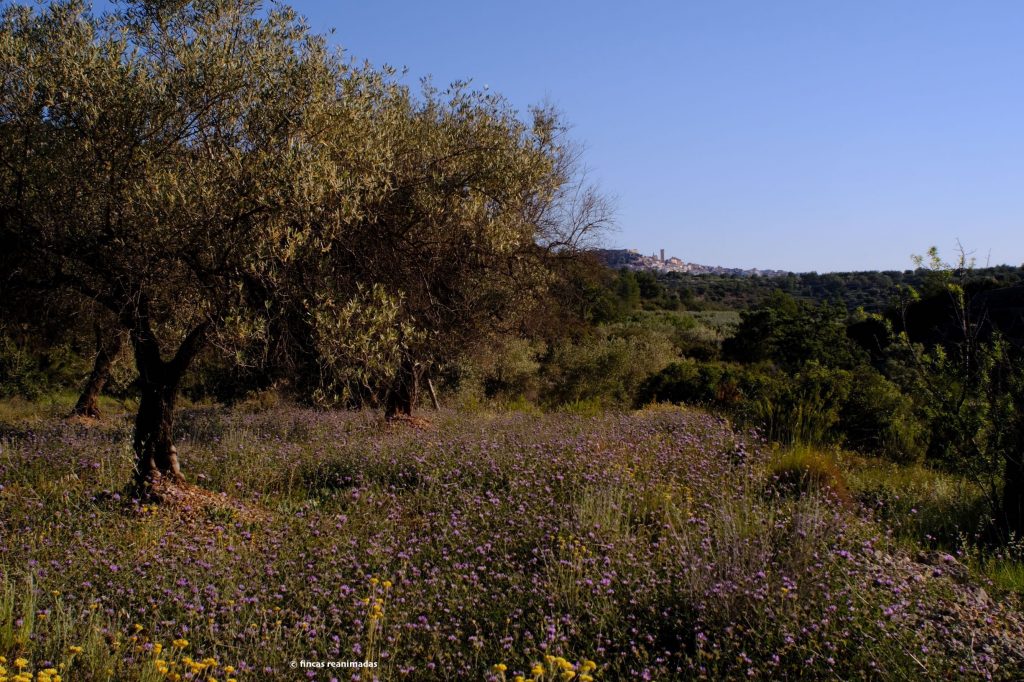

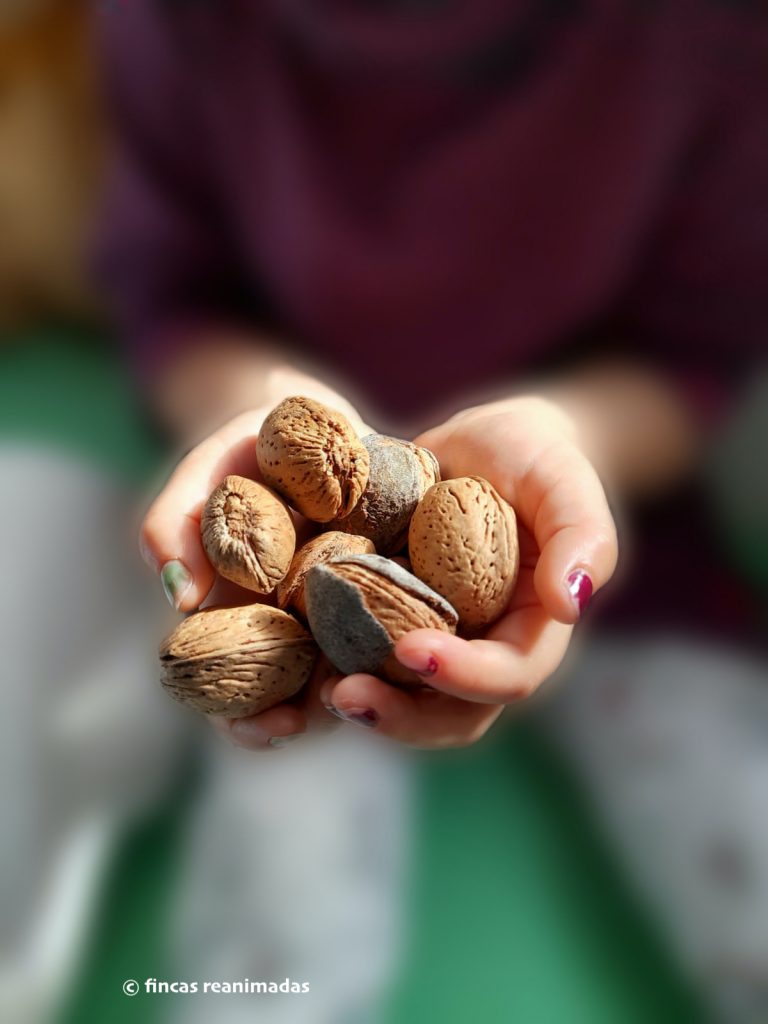



Deine Daten werden verschlüsselt übertragen. Deine IP-Adresse wird nicht erhoben.
Infos zum Datenschutz